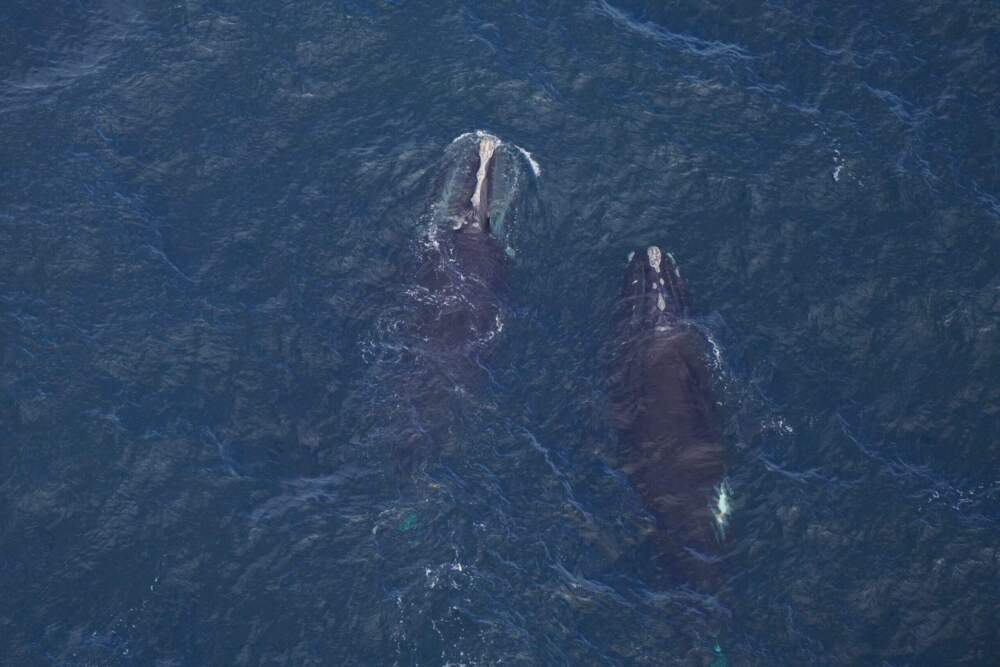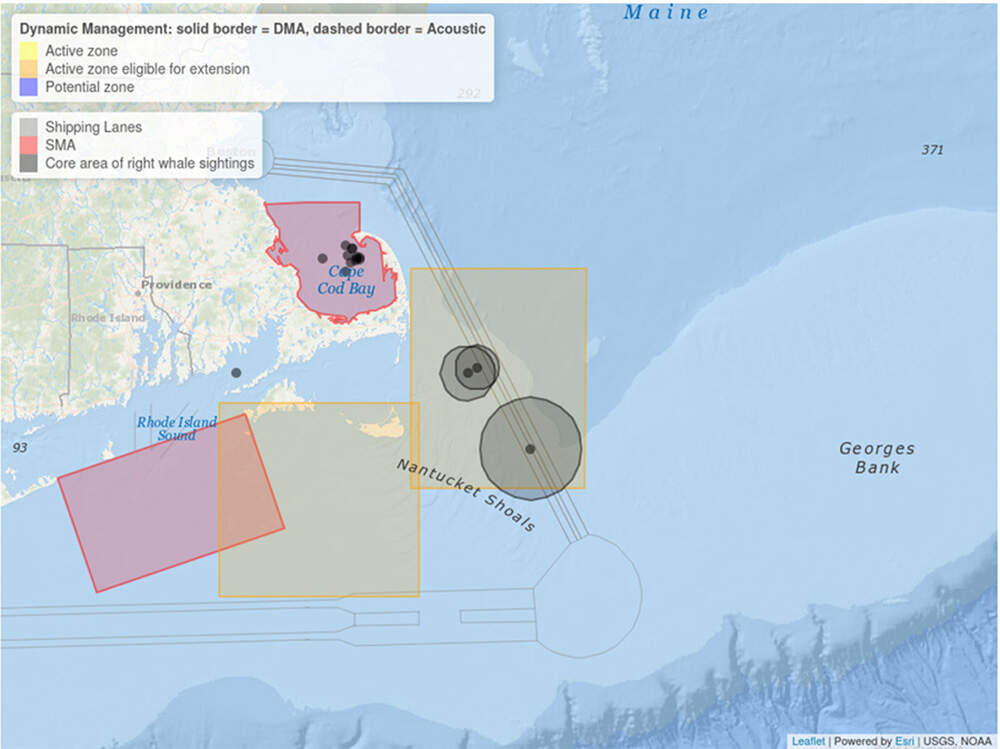Advertisement
31 right whales spotted feeding in shipping lane off Massachusetts

Authorities are calling for ships to slow down while traveling in shipping lanes off of Cape Cod after 31 endangered North Atlantic right whales were spotted feeding close to the surface.
New England Aquarium scientists saw the whales from a six-hour aerial survey flight over the Great South Channel on Feb. 20, according to a statement.
It's not unusual to see right whales in the waters off Massachusetts at this time of year, but the number of whales feeding on the surface of the water is unusual, said Katherine McKenna, assistant research scientist at the aquarium who was on the surveying flight.
In previous years, right whales were observed feeding in the deep subsurface layer of the ocean. Scientists couldn't see the whales in the deep, but could tell they were feeding based on their diving patterns. Climate change could be a cause of whales feeding in unexpected places.
"We know the Gulf of Maine is one of the fastest warming bodies of water in the world," said McKenna. "So there's a lot of climate-related changes going on that are having an impact on their prey and it's making the timing and location of where these whales are popping up a little bit more unpredictable than in the past."
McKenna said when whales appear in areas they're not often seen it's often because they found a patch of food and will eat it fully before moving on.
Right whales are considered endangered and their numbers have dwindled to about 360 in recent years amid vessel strikes, entanglements in fishing gear, ocean noise pollution and climate change impacting their food supply. Authorities periodically implement what's known as "slow zones" to limit ships' speed when there are whales present. The Great South Channel has mandatory slow zones from April to July.
In response to the sightings of these whales, the National Oceanic and Atmospheric Administration extended a voluntary slow zone outside of the typical season. Mariners are asked to reduce speeds to 10 knots to protect the whales. The slow zone is in effect until March 7. There are multiple voluntary slow zones in place from Virginia to Maine due to whale sightings.

However, McKenna noted that even slow-moving ships pose a risk.
"Even something going slow, like a large container ship that makes contact with a whale's head or a body — that can still be lethal or [cause] very serious injury."
One of the whales observed in the area is an adult female named Caterpillar; her body is marked with a long scar from a container ship strike seven years ago, the aquarium said.
Earlier in February, a dead right whale washed up on Martha's Vineyard and was likely killed from chronic entanglement wounds. A rope tangled around the young female's tail was identified as a piece of Maine lobstering gear. A second dead right whale was found floating off the coast of Georgia a couple weeks later.
Slow zones and other regulations meant to protect right whales that impact maritime and fishing industries in New England have been controversial. Industry groups have sued over regulations to lobster fishing and electronic monitoring. Environmental groups have also filed lawsuits to force the federal government to finalize ship speed regulations to protect the endangered species.

